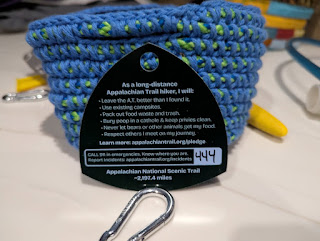The Journey Of A Thousand Miles Begins With A Single Step
Starting the ambulance conversion seems like a daunting task. But just like any big job, if you have a good understanding of where you want to go and then break it down into smaller tasks, eventually you'll get to where you want to be.
First and foremost, we want to get our new vehicle insured and on the road. Before we can do that though, we have to decommission it as an ambulance. The State of New Hampshire tells us the following:
266:78-r Vehicle Formerly Used as Ambulance to Having Identifying Features Removed. - Prior to driving on the ways of the state, a vehicle which was formerly used as an ambulance or rescue vehicle but is on longer licensed as an ambulance under RSA-153-A, a person shall remove any siren, red forward and side emergency lights, gold lettering, red cross, caduceus, or other medical insignia, "Keep back 500 feet", "Emergency", "Ambulance", "Rescue", or other lettering or insignia that might cause the vehicle to be mistaken for a working ambulance or rescue vehicle. This section shall not apply to vehicles owned or leased by the state, county, or municipal emergency response agencies, the American Red Cross, duly registered antique vehicles, or licensed transporting EMS agencies.
So primarily we have a lot of things to remove off the vehicle exterior. All the markings are decals which we have a plan to remove thanks to YouTube. We have to disable and/or remove the emergency lighting on the exterior as well. That includes the light bars on the front and back, strobing emergency lights on the back and sides, strobes in the front grill, the "wig-wag" that flashes the headlights in emergency mode, the lights and sirens on the bumper, and the gizmo that turns traffic signals green when the ambulance approaches.
One big ticket item is simplifying the electrical system and separating the house batteries from the vehicle batteries. Currently the same batteries that start the vehicle also power the back of the ambulance, which is a recipe for dead batteries some cold morning. Our electric cabinet currently looks like this:
We took measurements of the interior and created a scale drawing so we could start figuring out things like how to get a bed in here. That is a whole engineering exercise in and of itself. We have a few competing ideas on how to go about this. We're planning to prototype this in the barn and learn by trial and error.
Slowly, but surely, we'll take this one step at a time and make incremental progress. Our plan is still to do this conversion a little at a time, figure out what works/doesn't work as we go, and steadily improve. Our goal is to be able to do some early dry runs this spring. There's a lot to get done between now and then. We're slowed down a bit at the moment because of the cold weather, but we're still motivated to get out there and get as much done as we can before our hands go numb.
Future blog posts will go into more detail as we start making these changes. It will be an adventure.







The schematic made my head hurt. The good news is that there is a YouTube video for taking apart an ambulance. I bet there is a YouTube video that explains the best way to get rid of a body.
ReplyDelete